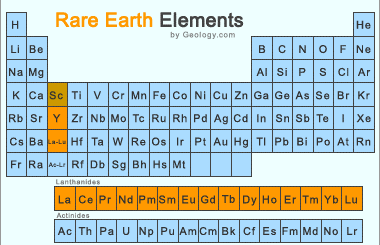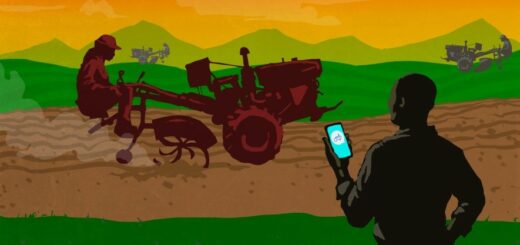National Current Affairs – UPSC/IAS Exams- 12th November 2019
Topic: Monuments of India
In News: Suranga Bawadi, situated in Bijapur Karnataka, has entered the World Monuments Watch List under “Ancient Water System of the Deccan Plateau” of the World Monument Funds.
More on the Topic:
- Suranga Bawadi is an integral part of the ancient Karez System of supplying water through subterranean tunnels.
- It was built by Adil Shah-I of Adilshahi dynasty of Bijapur in the 16th century to supply water to Vijaypura in Karnataka.
- Karez is a water harnessing technology in which groundwater is brought to the surface by a tunnel.
- In this system, no mechanical pump or lift is used. Gravity alone brings the water from the underground source.
- The technology originated in Persia/Iran and was widely used during the medieval period.
About World Monument Fund:
- World Monuments Fund is a private nonprofit organization founded in 1965 by individuals concerned about the accelerating destruction of important artistic treasures throughout the world.
Source: Hindu
Topic: Science and Technology
In News: Boeing has submitted its proposal to NASA for a lunar lander concept that the company claims will return Americans to the Moon in 2024 with the “fewest steps” possible.
More on the Topic:
- NASA’s Artemis program aims to send astronauts to the Moon by 2024 with the ultimate goal to land humans on Mars.
- The astronauts will be first sent to the Orion spacecraft using the new Space Launch System (SLS) rocket.
- The spacecraft will take the crew to the lunar orbit and will return them to Earth as well.
- The Orion spacecraft will be docked at the Gateway, from where the astronauts will take expeditions to the surface of the Moon in the human landing system.
- For the mission, NASA announced it will also be accepting proposals from private space corporations to use their technologies for the exploration program.
Source: The Hindu
Export Subsidies-WTO Ruling Against India
Topic: Economy
In News: World Trade Organisation’s (WTO) dispute settlement panel ruled against India in a trade dispute over its subsidies to exporters under various schemes.
More on the Topic:
- The US in March 2018 challenged export subsidies provided by India under five sets of schemes:
- Export-Oriented Units, Electronics Hardware Technology Park and Bio-Technology Park (EOU/EHTP/BTP) Schemes
- Export Promotion Capital Goods (EPCG) Scheme
- Special Economic Zones (SEZ) Scheme
- Duty-Free Imports for Exporters Scheme (DFIS)
- Merchandise Exports from India Scheme (MEIS)
- The US had alleged that these schemes violated certain provisions of WTO’s Subsidies and Countervailing Measures (SCM) Agreement.
- The SCM Agreement prohibits subsidies that are dependent on export performance.
- According to the agreement, India was only exempt from this provision until its GNP per capita per annum reached $1,000.
- The export subsidies under most of the challenged schemes, except for MEIS, consist of exemptions and deductions from customs duties and other taxes.
- The subsidies under MEIS consist of government-issued notes (“scrips”).
- [Scrips can be used to pay for certain liabilities vis-a-vis the government and are freely transferable]
- The US argued these subsidies were a detriment to American workers and manufacturers.
- When consultations with India did not work out, the US in May 2018 requested that a dispute settlement panel be set up.
What was India’s defence?
- The SCM Agreement allows for special and differential treatment of certain developing countries.
- The agreement carves out exemptions from or remission of duties or taxes on an exported product under certain conditions.
- India argued that certain provisions under this agreement excluded it from the provisions prohibiting export subsidies.
- It also argued that all the challenged schemes, except the SEZ scheme, adhered to a provision of the SCM Agreement.
What is the rationale for ruling against India?
- The panel found the US had “demonstrated the existence of prohibited export subsidies” that were inconsistent with SCM Agreement provisions.
- India had foregone revenue through exemptions and deductions from duties and other taxes to the benefit of exporters in most schemes.
- In the case of MEIS, the US was able to establish that exporters benefited from a direct transfer of funds through the provision of scrips.
- MEIS, because of its design, structure and operation, did not meet the conditions for the exemptions from these prohibitions as well.
- The US had established that most of the measures under the other four schemes were “contingent in law upon export performance”.
- With its present GNP numbers, India is undisputedly no longer excluded from the application of the WTO prohibition on its export subsidies.
- WTO also concluded that “no further transition period” was available to the country to stop these subsidies.
- It is also to be noted here that not all the US’ arguments were accepted by the panel.
- It rejected some of its claims regarding –
- certain customs duty exemptions provided under the DFIS scheme
- excise duty exemptions under the EOU/EHTP/BTP schemes
What will the impact be?
- If the panel’s ruling is adopted, the decision is expected to put at risk export subsidies claimed to be worth over $7 billion annually.
- These, notably, benefited producers of steel products, pharmaceuticals, chemicals, information technology products, and, textiles and apparel.
- While there will be no retrospective impact, India would have to stop providing the subsidies in this form.
Alternatives Available:
- Some experts say India can tweak the schemes to support exports while making them more WTO-compliant.
- g. India can provide tax concessions (like concessions on GST) on parts and components used in the production of the exported product
- By this way, it can continue to support exports.
- The government has already begun work on making some of the debated schemes more WTO-compliant.
- In September 2019, it announced the Remission of Duties or Taxes on Export Product to replace the MEIS as a more WTO-compliant scheme.
- The overall duty foregone under this scheme is expected to be “more or less the same” as MEIS (around Rs 40,000 crore-45,000 crore annually).
Way Ahead:
- India plans to appeal the WTO report on some aspects of law and legal interpretation.
- This is to be done before the panel’s report is adopted within 60 days of it being circulated with all members. The US is expected to push for early adoption.
- However, if India’s notice to appeal the report is submitted before this, it stands a chance of challenging the ruling.
- On the other hand, the dispute panel’s appellate mechanism is expected to become dysfunctional after December 11 2019.
- [Two of the three remaining members of the body will retire on that date.]
- In that case, India may not be obligated to implement the panel’s current ruling.
- This is because, if its appeal is submitted on time, it will join a set of 10 other appeals in other WTO dispute cases that have been filed since July 2018.
- So, until those appeals are cleared and India’s own appeal is resolved, the country will be under no legal compulsion to make the changes recommended in the panel’s current report.
Source: Indian Express
Topic: Government Policies
In News: Union Ministry of Environment, Forest and Climate Change (MoEF&CC) is undertaking a mass cleanliness-cum-awareness drive in 50 identified beaches under the programme called ‘Swachh- Nirmal Tat Abhiyaan’.
More on the Topic:
- Environment Education Division of the MoEFCC and Society of Integrated Coastal Management (SICOM) under the aegis of Ministry will be responsible for the overall coordination for drive in 50 beaches. Respective State Governments and Central Ministries will also be actively participating in beach cleaning drives.
- The cleaning drives undertaken in all beaches will involve institutions, school/college students of Eco-clubs, volunteers, district administration, local communities among others.
- State Nodal Agencies for Eco-clubs will facilitate the week long intensive cleanliness drive in all 10 States/UTs.
- Nodal teachers from respective Eco-clubs will be present at the sites during entire cleanliness drive.
- On completion of the cleanliness drive, best three beaches will be suitably awarded along with a Certificate of Appreciation for all the participating Eco-clubs.
Source: Hindu
Indo-Pacific Oceans Initiative
Topic: International Affairs
In News: The Indo-Pacific Initiative was proposed by PM Modi for a safe and secure maritime at the East Asia Summit. This indicates that India is ready to play a bigger role in the region where China has been pushing its military assertiveness.
More on the Topic:
- The idea of the initiative was mooted by the PM when he addressed the East Asia Summit in Thailand.
- The main objective of the initiative is to achieve safe, secure and a stable maritime domain.
- The initiative aims to achieve this by creating partnerships among interested states by sustainably using marine resources.
- To take the initiative forward, India will organize a Indo-Pacific Conclave in Chennai early next year.
- Japan, Australia and Thailand support the initiative already. And many more ASEAN countries are expected to express their support to the initiative in the near future.
- The initiative is considered by the experts as an incremental step to the Shangri la dialogue.
About Shangri la Dialogue:
- The Shangri-La Dialogue (SLD) is a “Track One” inter-governmental security forum held annually by an independent think tank, the International Institute for Strategic Studies (IISS) which is attended by defense ministers, permanent heads of ministries and military chiefs of 28 Asia-Pacific states.
- The summit serves to cultivate a sense of community among the most important policymakers in the defence and security community in the region.
Source: Hindu
Topic: International Affairs
In News: Iran has discovered a new oilfield with 53 billion barrels of crude oil in Khuzestan province, home to Iran’s Khuzestan’s crucial oil industry.
More on the Topic:
- The discovery of field is expected to boost country’s proven 150 billion barrel reserves by a third. It could also become Iran’s second-largest field after one in Ahvaz containing 65 billion barrels.
- Iran currently has about proven crude oil reserves of 155.6 billion barrels and this new oil filed discovery would add about 34% to its total reserves.
- At present, the US Energy Information Administration (EIA) ranks Iran as having world’s fourth-largest proven deposits of crude oil and world’s second-largest deposits of natural gas. If the size of new oil reserves is proven to be accurate, it would lift the country to 3rd place, just below its regional enemy Saudi Arabia.
- The new find could boost country’s battered economy amid stringent US sanctions.
Source: PIB
Topic: Important Personalities in News
In News: The man behind fixing the electoral system of India, TN Seshan passed away recently.
More on the Topic:
- Seshan belonged to the 1955 batch of Tamil Nadu cadre officers of the IAS.
- At the Centre, Mr. Seshan held several positions, including Environment and Forests Secretary, Defence Secretary and later, Cabinet Secretary
- When Chandra Shekhar became Prime Minister with the support of the Congress, Mr. Seshan was made CEC in December 1990
- N. Seshan, as CEC during 1990-96, initiated the process of cleaning up the electoral system. The introduction of electors’ photo identity cards was a measure towards this direction.
- He also saw to it that the model code of conduct, till then considered a document of academic interest, was taken seriously by the parties and candidates
- In the mid-1990s, Mr. Seshan was seen as a crusader against corruption and electoral malpractices.
- His work was recognised internationally when he was given the Ramon Magsaysay award for 1996.
- In July 1997, Mr. Seshan unsuccessfully contested the presidential election against K.R. Narayanan.
Source: The Hindu



















